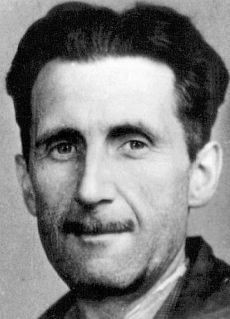
At this point, some readers might be asking, ‘How and why would Orwell have placed the aspects and actions of both Lenin and Stalin into one character?’ This is where my argument can make its main point, and it is one of ideology. It is often assumed that Lenin was the righteous revolutionary and Stalin the dark despot. Despite this, many historians, including the Russian Historian Dmitri Wolkogonow, believed that Stalinism, rather than being a rejection of Leninism, was to a large extent, merely an escalation of Lenin’s beliefs and policies: ‘The system demanded a Stalin based on the system created by Lenin.’ This matches the evolution of Napoleon’s character exactly because, as the narrative progresses, he becomes more extreme in his actions. This continues until the Stalinist side overtakes the Leninist side of Napoleon at the point of Snowball’s exile. This is also in tandem with history, as it was when Trotsky fled the Soviet Union that Stalin tightened his fist.
There is a list of evidence which supports what Wolkogonow called ‘continued escalation’ between the reigns of Lenin and Stalin, although it is too vast to delve into in any detail here. So I’ll only mention a couple of points. After Stalin’s rise to power, Lenin’s Cheka is replaced by Stalin’s more ruthless NKVD, who had the power of Article 58, allowing them to arrest, imprison, torture, and kill almost at will. The sardonic wit of Solzhenitsyn’s The Gulag Archipelago is particularly poignant in describing the law: ‘Who among us has not experienced its all-encompassing embrace? In all truth, there is no step, thought, action, or lack of action under the heavens, which could not be punished by the heavy hand of Article 58.’ Both Lenin and Stalin also believed that anti-theism and the destruction of industrial workers’ rights were necessary if Russia was to be a superpower once again. One may doubt that Orwell knew of all these similarities, but it would be implausible to say that a man of his political knowledge was not aware of at least some of these facts.
It is even more interesting to see how literary critics interpreted the allegory of Animal Farm when it was first published. In his review for The New Republic, George Soules states that “Napoleon and Snowball, are then readily identified as Lenin and Trotsky [my italics].” Napoleon is perceived to be Lenin, not Stalin. Soules adds that, “puzzlement is increased when Napoleon chases out Snowball as a traitor; it was Stalin who did this.” The re-interpretation I have argued - that the character of Napoleon is an amalgamation of Stalinism and Leninism - resolves the inconsistency which Soules mentions.
Therefore the proposition that the Stalin pig is also the Lenin pig in George Orwell’s Animal Farm appears justified (though it will be interesting to see if it stands up to scrutiny).
However, thinking beyond Animal Farm, another question must be asked: who is going to be the next Orwell? In fact, will anyone be able to replace him? If so, they will have to be able to produce eternally relevant phrases such as this:
“If liberty means anything at all, it means the right to tell people what they do not want to hear.”
Image: By Branch of the National Union of Journalists (BNUJ). (http://www.netcharles.com/orwell/) [Public domain], via Wikimedia Commons

0 Comment:
Be the first one to comment on this article.